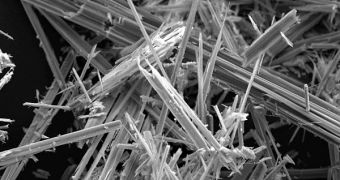Canada announced last week that the country would not support international decisions to place asbestos on the blacklist of dangerous substances, thus protecting the sensitive industry. The nation is not keen on keeping the levels of production going necessarily, but shutting down the plants in the French-speaking region of Quebec could further increase the separatist demands in the area.
While the Chrysotile Institute asbestos lobby group still maintains that the compound is safe to use, if mixed properly with concrete, international opinions on the matter tend to disagree, arguing that asbestos can pose serious health risks for workers handling it. The United States banned the substance at one point, but then a legal precedent overturned the decision, Australia and New Zealand also have bans in place, as do several other countries worldwide.
India and Pakistan, two of the largest asbestos importers in the world, also opposed an international ban on the mineral, arguing that their developing economies needed it to further expand. The substance can be used for a variety of purposes, but the most common is for thermal insulation, as it doesn't burn. In some countries, asbestos roofs are a common sight and are the main option for people to cover their homes.
"Canada's defense of asbestos has nothing to do with reason or logic or economics. It's all about domestic politics. They call asbestos the tobacco industry's evil twin – they both survive on phony research and intense lobbying and sell a product that's a Class A toxin. Not to put it on the list is morally reprehensible," argued Pat Martin, a representative of the New Democratic Party.
With the opposition from these 3 countries, the international meeting, scheduled to take place in Rome this week, has little chance of adopting the proposal of banning asbestos. "I can safely say that the initiative is doomed this time," Martin added.

 14 DAY TRIAL //
14 DAY TRIAL //